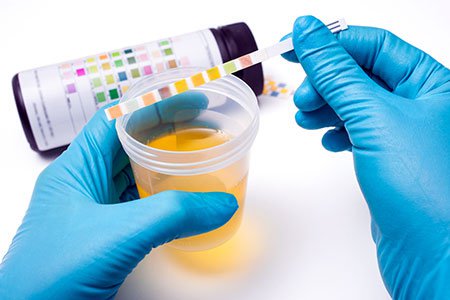Imagine needing a liver transplant but being told you need to enroll in an alcoholic anonymous program instead. A 61-year-old woman with cirrhosis was met with a similar fate when she was denied a spot on the waiting list for a liver transplant, for being an alcoholic. She exhibited no symptoms of intoxication, denied having a problem with alcohol abuse but the high levels of ethanol in her urine painted a different picture.
She then decided to try her luck at the University of Pittsburgh Medical Center (UPMC) Presbyterian Hospital. The doctors at UPMC were able to establish that she had cirrhosis and uncontrolled diabetes. Although her test results did show high levels of ethanol in the urine, two important compounds missing were ethyl glucuronide and ethyl sulfate, both of which are metabolites of ethanol and found in the urine after alcohol consumption.

After going through the rest of her lab results Dr. Kenichi Tamama, medical director of the UPMC Clinical Toxicology Laboratory, also noticed high levels of yeast and sugar in the patient’s urine. Which led him to question whether the yeast could be producing the alcohol. The search for an answer caused Tamama and the team of doctors and clinicians to discover the first proven case of urinary auto-brewery syndrome.
What is Auto-Brewery Syndrome?
Auto-brewery syndrome (ABS) or gut fermentation is a rare medical condition where the ingestion of carbohydrates results in endogenous production of alcohol. This is due to the yeast or bacteria present in the gastrointestinal (GI) tract. In urinary auto-brewery syndrome, the alcohol is produced due to the microbes in the bladder. Unlike people with ABS, patients with the urinary auto-brewery syndrome don’t experience intoxication. The bladder doesn’t allow ethanol to pass through the bladder wall, so it’s not absorbed into the bloodstream. The GI tract, however, allows the ethanol to pass through thus, causing intoxication.
According to Dr. Tamama, uncontrolled diabetes caused high levels of sugar in the patient’s bladder which reacted with the yeast in the bladder to form high levels of ethanol. He believes that better diabetic management and antifungal treatment can help treat this condition.
The case study published in the journal, Annals of Internal Medicine, hopes to alert clinicians of this rare auto-brewery syndrome so similar signs and symptoms are not overlooked in transplant patients, as it can lead to false labels, stigmatizations, and delay in treatment.
Once the diagnosis of an alcohol use disorder is attached to the patient, the assumption of surreptitious alcohol use can haunt and falsely stigmatize the patient.
Dr. Kenichi Tamama
References:
Kruckenberg KM, DiMartini AF, Rymer JA, et al. Urinary Auto-brewery Syndrome: A Case Report. Ann Intern Med. 2020;




